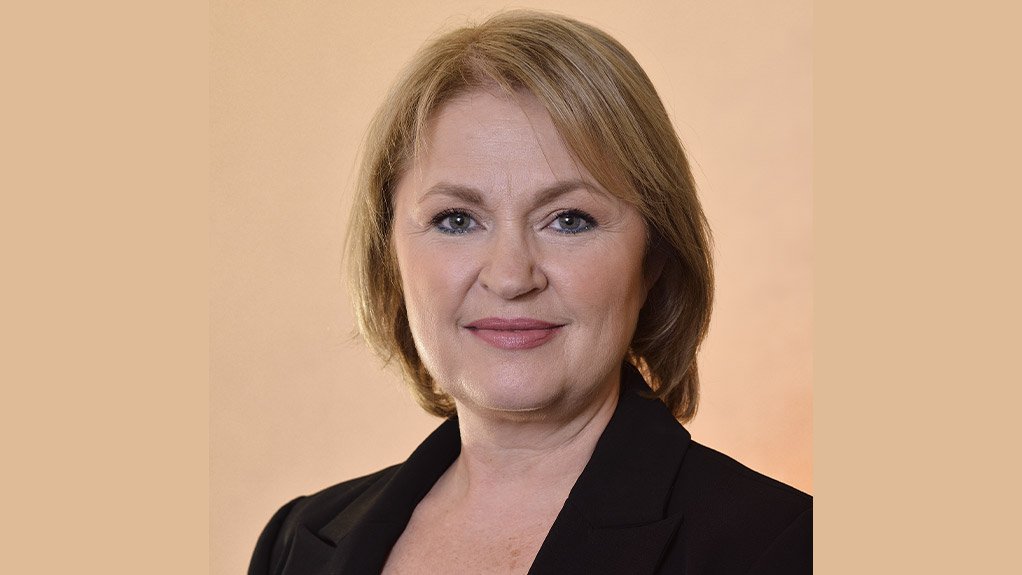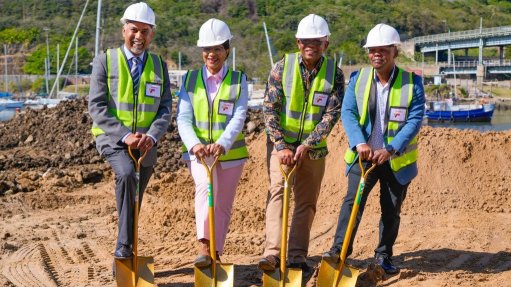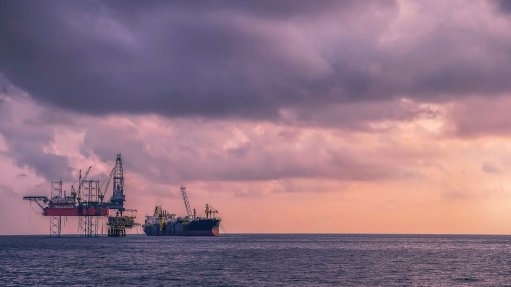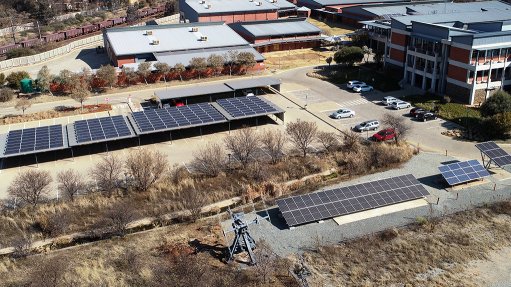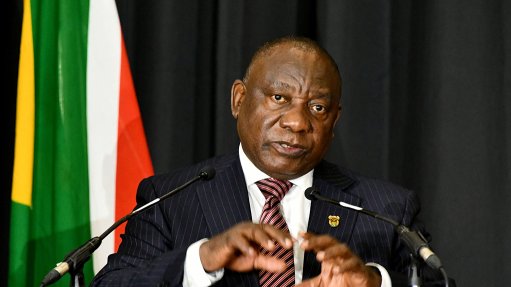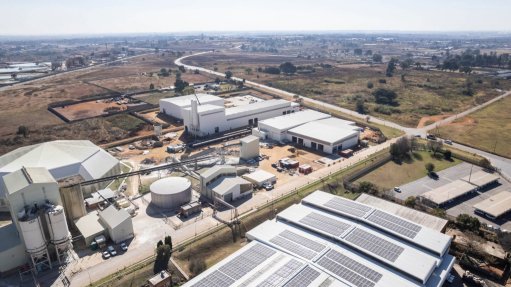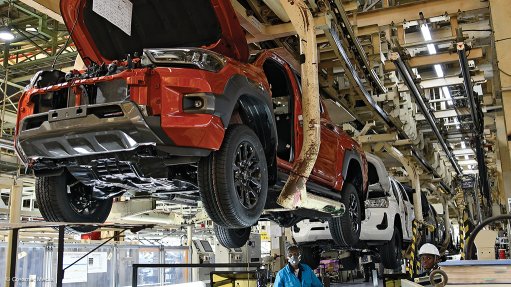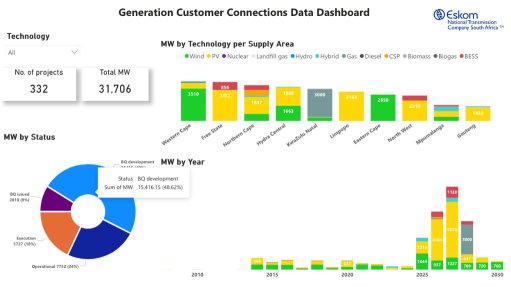Green-hydrogen secretariat being set up at IDC as single point of contact for public and private coordination
South Africa’s Industrial Development Corporation (IDC) is in the process of setting up the institutional capacity to house the Green Hydrogen Just Energy Transition (JET) Secretariat, which is being established as the country’s single point of contact and coordination for public and private green hydrogen initiatives.
COO Joanne Bate tells Engineering News that recruitment processes are under way and that the secretariat, which will be coordinated and set up by Mahandra Rooplall, should be fully staffed by early 2025.
It will also be ringfenced from the development finance institution’s own commercial strategy in the area of green hydrogen, which will be pursued in parallel.
The secretariat will support the coordination of activities that have been identified as essential to the eventual development of a green hydrogen industry and ecosystem, including global advocacy in areas such a standard setting and the creation of frameworks to firm up the initial offtake needed to secure project finance.
It will also support the efforts of workstreams that are being established to facilitate decision-making on various cross-cutting issues.
These relate to project funding, the supply of and demand for green hydrogen, the shared infrastructure needed to lower the capital costs of investments, the provision of support for technology incubation and skills development, the crafting of supportive policy and regulation and ongoing community engagement.
The decision to establish the secretariat follows both the finalisation of the implementation roadmap for the JET Investment Plan – which includes scope to support green hydrogen alongside electricity and new energy vehicles – and the Green Hydrogen Commercialisation Strategy.
The strategy has identified two distinct markets, namely export demand, driven by the international trade of green-hydrogen derivatives, and domestic demand, driven by fuel switching and new use cases in the areas of mobility, industrial processes, agriculture and power.
Bate says that both markets are receiving attention, but that priority will be given by the secretariat to key project enablers, such as offtake, standards and shared infrastructure, the absence of which is impeding commercial development.
Bate says it is particularly important for South Africa that there is consistency in the definition of offtake rules across key importing countries in Europe and Asia so as to help de-risk South African projects.
“If you're exporting low-carbon hydrogen that qualifies as low carbon or green in Japan and Europe and those rules change, there's a risk that your offtake will be compromised.
“And that’s why we are prioritising the issues of ensuring consistent standards and rules around the carbon-intensity of the product.”
It is likely that the South African strategy will also be refined over time, given that certain market opportunities for South Africa – such as fuel-switching in the marine sector – are seen as potentially materialising ahead of other opportunities identified in the strategy.
“Our initial view was that shipping was probably a 2030 to 2035 opportunity.
“But given the focus on decarbonisation of shipping and given South Africa's location on a number of global trade routes, we believe that there could be an opportunity to accelerate.”
Bate acknowledges growing cynicism about the prospects for green hydrogen, and acknowledges that this scepticism has arisen partly because of the initial hype.
However, she argues that it remains a high-potential industrialisation opportunity for South Africa, owing to the country’s natural resource advantages in the areas of sun, wind and land and the proposal that production be based largely on desalinated water.
“This is a 25-year value chain opportunity, which requires systematic efforts to unlock and to de-risk.
“We understand that everybody wants it to happen now, but it is important that we proceed in a balanced way while remaining ambitious so that we do not allow this industrial opportunity to slip away.”
Article Enquiry
Email Article
Save Article
Feedback
To advertise email advertising@creamermedia.co.za or click here
Comments
Press Office
Announcements
What's On
Subscribe to improve your user experience...
Option 1 (equivalent of R125 a month):
Receive a weekly copy of Creamer Media's Engineering News & Mining Weekly magazine
(print copy for those in South Africa and e-magazine for those outside of South Africa)
Receive daily email newsletters
Access to full search results
Access archive of magazine back copies
Access to Projects in Progress
Access to ONE Research Report of your choice in PDF format
Option 2 (equivalent of R375 a month):
All benefits from Option 1
PLUS
Access to Creamer Media's Research Channel Africa for ALL Research Reports, in PDF format, on various industrial and mining sectors
including Electricity; Water; Energy Transition; Hydrogen; Roads, Rail and Ports; Coal; Gold; Platinum; Battery Metals; etc.
Already a subscriber?
Forgotten your password?
Receive weekly copy of Creamer Media's Engineering News & Mining Weekly magazine (print copy for those in South Africa and e-magazine for those outside of South Africa)
➕
Recieve daily email newsletters
➕
Access to full search results
➕
Access archive of magazine back copies
➕
Access to Projects in Progress
➕
Access to ONE Research Report of your choice in PDF format
RESEARCH CHANNEL AFRICA
R4500 (equivalent of R375 a month)
SUBSCRIBEAll benefits from Option 1
➕
Access to Creamer Media's Research Channel Africa for ALL Research Reports on various industrial and mining sectors, in PDF format, including on:
Electricity
➕
Water
➕
Energy Transition
➕
Hydrogen
➕
Roads, Rail and Ports
➕
Coal
➕
Gold
➕
Platinum
➕
Battery Metals
➕
etc.
Receive all benefits from Option 1 or Option 2 delivered to numerous people at your company
➕
Multiple User names and Passwords for simultaneous log-ins
➕
Intranet integration access to all in your organisation



